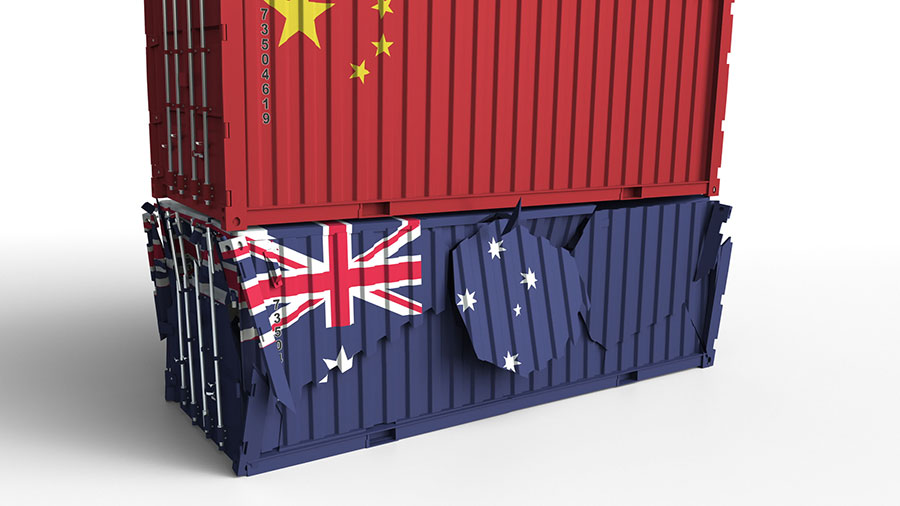The Australia-China Belt & Road Fall Out – What’s Been Cancelled?

Op/Ed by Chris Devonshire-Ellis
- Two Victoria MoU with Beijing’s NDRC withdrawn
- Loss of over US$3 billion in China exports
- Canberra needs to rebuild trust : The RCEP agreement is an opportunity
On Wednesday, (April 21st), Canberra enacted the Foreign Arrangements Scheme, which was introduced to plug a loophole concerning the previous ability for Australian states to engage in certain agreements without the consent of the Australian national Government. The Foreign Arrangements Scheme was placed on the legislature in December last year specifically in response to Australia’s Victoria State signing off MoU with the Chinese Government over various Belt & Road projects. Wednesday was the date of this being formally enacted and the MoU in question nullified.
While much has been made about the issue, the reality is that Australia’s own legislature possessed a weakness that allowed individual States a certain degree of autonomy. Rather than pointing the finger at China for exploiting that – an accusation that has led to recriminations and bad feeling on both sides, it is hardly unusual for regional politicians – in this case in Victoria – to wish to express their ability to think beyond the auspice of the State and deliver what they feel is locally beneficial. Canberra disagrees, and has closed that ability. It partially takes away some aspects of freedom from regionally elected Governments and places them in the centre of State politics – ironically the same as the Chinese model of Government. Canberra has also been somewhat aggressive towards China at the same time, in essence accusing Beijing of underhand practice whereas in fact Victoria State at the time was legitimately able to enter into such discussions. Canberra’s China position has resulted in trade losses with China of an estimated US$3 billion in exports. So, what has now been cancelled to justify the Canberra-Beijing row?
In a government statement concerning the decision to scrap Victoria’s arrangements, Australian Minister of Foreign Affairs Marise Payne said she had been notified about more than 1,000 established arrangements under the scheme. Many however are not Chinese but include deals signed off with countries such an Iran, Indonesia, and Syria, meaning the debate is not purely about China and the Belt & Road Initiative and is more to do with Canberra consolidating power and using the China gambit to cover this up. It is a Canberra variant of the Cold War “Reds under the bed” tactic.
When specifically dealing with Victoria, the Australian Government Department of Foreign Affairs and Trade formalized the cancellation of the following two MoU:
- The MoU between the Government of Victoria and the National Development and Reform Commission of the People’s Republic of China on Cooperation within the Framework of the Silk Road Economic Belt and the 21st Century Maritime Silk Road Initiative.
- The framework agreement between the Government of Victoria and the National Development and Reform Commission of the People’s Republic of China on Jointly Promoting the Framework of the Silk Road Economic Belt and the 21st Century Maritime Silk Road.
The MoU between Victoria and China were with the Beijing-based National Reform & Development Commission (NDRC) which is a high-profile Chinese government think-tank designed to research and suggest national development strategy. Having connections with the NDRC is useful as very specific discussions can take place on a mutual basis to work out solutions to problems. Victoria’s will have almost certainly been about developing regional trade and investment – the NDRC would have then normally considered options and instigated liaisons with other Chinese Ministeries – such as the Ministry of Commerce, Ministry of Finance and so on to examine where Victoria’s needs and China’s align.
The MoU themselves, as I discussed here are somewhat benign and are non-binding in nature. They are in effect a statement that two parties intend to work together and exchange views, hopefully later resulting in mutually beneficial outcomes. Some 147 countries and territories have signed such agreements – I have not been aware of any malignant impact because of these, although there have been occasional political grumbles. What Canberra has done though is put a nuclear bomb under the issue. While it is reasonable for Canberra to want to reign in renegade States they feel are acting out of their remit, that should have remained an internal political issue to resolve. Instead, Canberra provoked a trade war with China, yet it is hardly Beijing’s fault that Australia’s state governments’ foreign policy decision-making process was not aligned with federal government policy.
The question Australian exporters should be asking themselves is this: was the enforced withdrawal of two Victoria MoU’s with a Chinese Government advisory body worth US$3 billion in lost exports, and could the issue have been handled rather more professionally?
We will soon find out. Australia is a signatory to the Regional Comprehensive Economic Partnership (RCEP) free trade agreement which also includes China, all ten ASEAN nations, New Zealand, Japan, and South Korea. Canberra has yet to ratify the deal. Picking a fight with China over two MoU is one thing; withdrawing from trade agreements quite another, and Canberra, with Victoria State now firmly in its clutches, needs to work out how best to proceed. Improved China diplomacy would be a good place to start.
Related Viewing
About Us
Silk Road Briefing is written by Dezan Shira & Associates. The firm has 28 offices throughout Asia, and assists foreign investors into the region. For strategic advisory and business intelligence issues please contact the firm at silkroad@dezshira.com or visit www.dezshira.com





